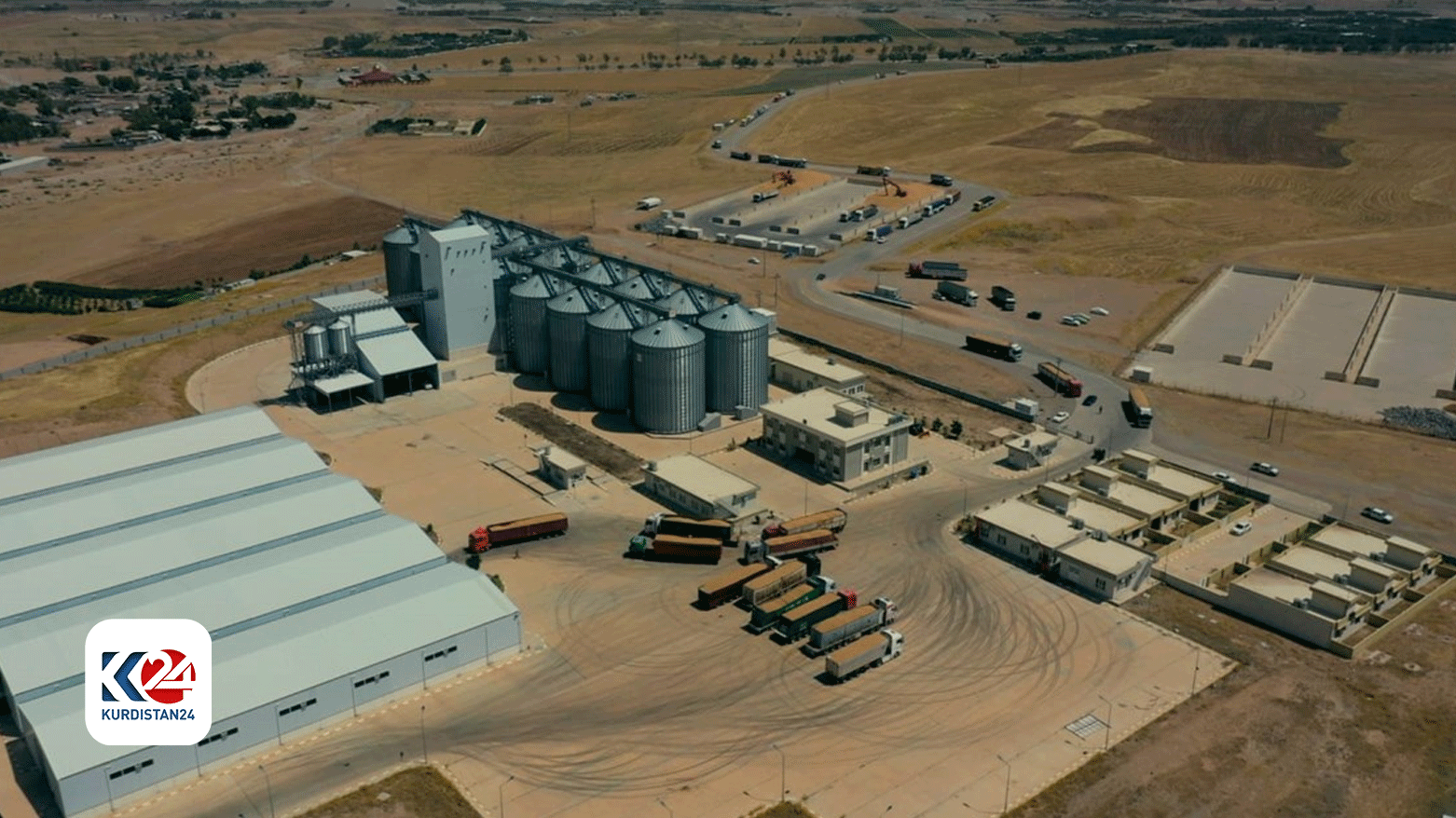KRG bolsters food security with infrastructure investments, domestic production support
The ninth cabinet has prioritized projects aimed at enhancing food and industrial infrastructure while providing robust support to domestic producers. This strategic focus has translated into tangible results.

ERBIL (Kurdistan24) – Amid growing concerns about food security globally, the Kurdistan Regional Government (KRG) has made significant strides over the past five years in strengthening the sector.
The ninth cabinet has prioritized projects aimed at enhancing food and industrial infrastructure while providing robust support to domestic producers.
This strategic focus has translated into tangible results.
Expansion of Silos and Storage Facilities
One of the key initiatives undertaken by the KRG is the construction of several grain silos across the region, ensuring the safe storage of wheat and other essential crops. In Erbil's Qushtapa district, a silo with a storage capacity of 40,000 tons of wheat was built at a cost of 21 billion Iraqi dinars.
Similar projects were implemented in other governorates, including Kalar in Sulaimani, where a silo with the same capacity was constructed for 20 billion dinars, and in Dohuk’s Ruviya area, where another 40,000-ton silo was built for 18 billion dinars.
Additionally, a new silo is under construction in Halabja, with an estimated cost of 26 billion dinars.
These investments in food storage infrastructure are crucial for maintaining grain supplies and ensuring that the Kurdistan Region can meet its food security needs, even in times of crisis or agricultural shortfall.
Support for Local Industry and Agriculture
The KRG has also focused on supporting local industries and agricultural production. Over the past five years, 977 new factory licenses were issued, bringing the total number of licensed factories in the region to 4,547.
Additionally, the Kurdistan Region is now home to 7,227 local companies, 216 branches of foreign companies, and 358 branches of Iraqi companies, bringing the total number of companies operating in the region to 7,801.
In the agricultural sector, the government has facilitated the construction of 30,000 greenhouses, benefiting 3,813 farmers.
This initiative has helped boost local production, alongside the establishment of 6,000 potato factories, 11 agricultural product factories, and 101 cold storage facilities.
Increased Agricultural Investment and Exports
As a result of these initiatives, the Kurdistan Region has seen a significant increase in agricultural investment, growing from 1.8% to 8% over the past five years.
This growth has enabled the region to not only meet its domestic food needs but also begin exporting agricultural products to international markets.
The region now exports items such as rice, sumac, tahini, pomegranates, honey, apples, and potatoes to the United Arab Emirates, Gulf countries, and even European markets.
The ninth KRG cabinet’s focus on food security, industrial development, and agricultural growth has positioned the Kurdistan Region as a key player in regional agricultural exports.
With continued investment in infrastructure and support for local farmers and businesses, the region is set to further enhance its economic independence and long-term food security.